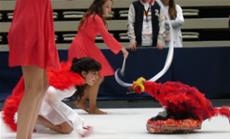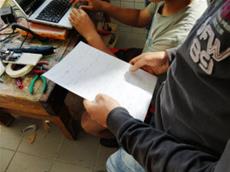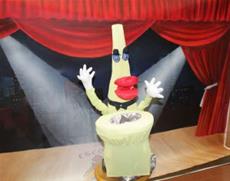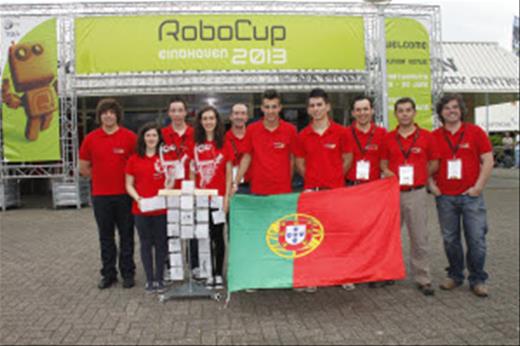"... Leadership tomorrow depends on how we educate our students today—especially in science, technology, engineering and math."
President Barack Obama, September 16, 2010
Hands-on Robots is a project developed by primary and secondary schools from the north of Portugal. This project promotes a pedagogical approach that will motivate students to have an active role in the learning of science and technology subjects. The teachers and students involved in this project have participated in robotic events such as RoboParty, “National Festival of Robotics”, Robotop, RoboCup, etc.. In these events, we have exchanged many ideas which had helped us productively. Last years we participated successfully in the RoboCup competition. We were awarded with the first place in Robotic Dance League. Now the students are working hard to ensure their success at next. Although these awards were obtained in the field of robotic dance, we have also devoted our attention to building robots for other educational purposes, such as the use of robots in Physics and Chemistry laboratory experiments. Guided by teachers, our students have been true researchers in robotics.
The teachers and students involved in this project have participated in robotic events such as RoboParty, “National Festival of Robotics”, Robotop, RoboCup, etc.. In these events, we have exchanged many ideas which had helped us productively. Last years we participated successfully in the RoboCup competition. We were awarded with the first place in Robotic Dance League. Now the students are working hard to ensure their success at next. Although these awards were obtained in the field of robotic dance, we have also devoted our attention to building robots for other educational purposes, such as the use of robots in Physics and Chemistry laboratory experiments. Guided by teachers, our students have been true researchers in robotics.  Hands-on experimentation in the classroom has proved a success in raising awareness in Science & Technology learning, but also in improving essential skills such as autonomy and responsibility, critical reasoning, self-organization, self-commitment, self-motivation, method and social interaction. If this hands-on practice involves building, constructing or developing a final product to perform a specific task, its success can be highly potentiated. Especially when the subject dealt with is as innovating, striking, current, as is robotics for all of us, but especially for the youth of today. Teaching robotics is in itself a topic of utmost actuality and importance, but also a vehicle to convey the learning of important knowledge and skills in a variety of disciplines.
Hands-on experimentation in the classroom has proved a success in raising awareness in Science & Technology learning, but also in improving essential skills such as autonomy and responsibility, critical reasoning, self-organization, self-commitment, self-motivation, method and social interaction. If this hands-on practice involves building, constructing or developing a final product to perform a specific task, its success can be highly potentiated. Especially when the subject dealt with is as innovating, striking, current, as is robotics for all of us, but especially for the youth of today. Teaching robotics is in itself a topic of utmost actuality and importance, but also a vehicle to convey the learning of important knowledge and skills in a variety of disciplines.  In our schools we have been working to build autonomous robots. This work involves an interdisciplinary approach that requires knowledge of Electro-mechanics (models of DC motors), Physics (kinematics and dynamics) and Geometry concepts. The actual construction of the robot requires an even broader range of concepts, covering areas such as Control, Instrumentation, Electronics, etc... This makes the construction of small autonomous robots an activity of considerable educational value contributing to consolidation of knowledge acquired by the students during the course.
In our schools we have been working to build autonomous robots. This work involves an interdisciplinary approach that requires knowledge of Electro-mechanics (models of DC motors), Physics (kinematics and dynamics) and Geometry concepts. The actual construction of the robot requires an even broader range of concepts, covering areas such as Control, Instrumentation, Electronics, etc... This makes the construction of small autonomous robots an activity of considerable educational value contributing to consolidation of knowledge acquired by the students during the course.

 0
0 

